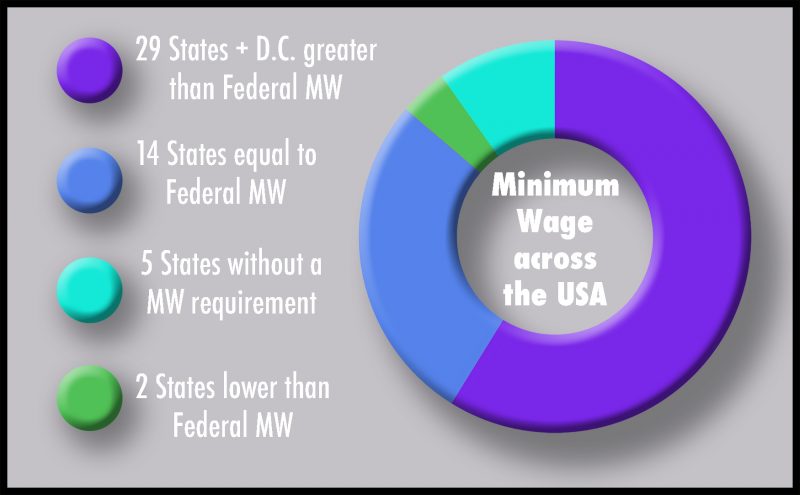As an undergraduate, David Macpherson was determined to become an engineer. In his first year, he took engineering courses. Macpherson sat through calculus, physics, more calculus and more physics. Classes seemed to take forever, tests were excruciating and the projects exasperating. It wasn’t until Macpherson took his first economics class, and earned his first A, that he found his calling.
Now head of the economics department, Macpherson works as a labor economist. He studies wages, employment, discrimination and the minimum wage. “How Will a $15 Minimum Wage Affect Employment in California?”, a paper that Macpherson recently wrote with a Miami University economist, is under review to possibly be published in the Industrial and Labor Relations Review.
The paper explores the effect of the continual increase of minimum wage in California across industry-county combinations. These industry-county combinations describe different business fields — such as hospitality, food preparation and retail — within specific counties in California that are expected to experience job growth.
The economics professors analyzed government data from 1990–2016. Right now, California’s minimum wage is at $11 an hour and is set to increase to $15 an hour by 2022.
Through his research, Macpherson was able to gauge the impact that the increase to $15 an hour would have on employment. His models showed that the raise would cost California 400,000 jobs due to layoffs and loss of expansion in these fields.
John Huston, another Trinity economics professor, believes Macpherson’s paper gives a more holistic view of the effects of minimum wage than previous papers.
“One of the nice things about his paper is it doesn’t just do the good or bad thing, but it talks about in these specific industries — in these conditions you’ll get bad results and lots of people laid off,” Huston said. “In other industries, it won’t be so bad — layoffs will be much less significant. So it’s a more complete study than a lot of the ones that have been done.”
Macpherson argues that the blanket raise in minimum wage across the state would not account for the difference in average wage in the industry-county combination, leading to a loss of jobs.
“It’s a minimum wage that applies across the state,” Macpherson said. “Some areas of the state are lower-wage areas. Some industries are lower-wage industries. [With] retail in a rural area, you’d think minimum wage would affect employment more than finance in San Francisco, so fewer people are going to be affected in San Francisco in finance than they will in a more rural county.”
Macpherson’s paper shows that a rise in minimum wage would not have its intended effects of reducing the number of people below the poverty line. Instead of manipulating minimum wage, Macpherson proposes using earned income tax credit to relieve poverty levels in America.
“I’m not against helping the poor,” Macpherson said. “I just don’t think the minimum wage is a very effective way to do it, because a lot of people who earn minimum wage don’t, in fact, come from poor families. The earned income tax credit is a lot more effective way to help the poor. The government supplements the salary with a tax credit so that if you have a family with kids, you get additional money. Instead of paying taxes, they give you money. The more you work, up to a cap, the more you get paid.”
Another facet to minimum wage is its political effect. Peter O’Brien, professor of political science, spoke on the politicized nature of minimum wage in debates about the government’s role in society.
“Negative freedom is ‘freedom-from,’ so the government’s main role is to make sure that the people’s freedom is not restricted — like the freedom to pay whatever you want to your employee, and the freedom to barter for whatever you want from your employer,” O’Brien said. “There’s another form of government called positive freedom, arguing a government’s role is to help people live a more fulfilling life. It says government should create the necessary conditions under which people can thrive.”
Dennis Ahlburg, distinguished professor of economics, says that publishing research on the minimum wage in the Industrial and Labor Relations Review journal is an impressive feat.
“To get another paper on the minimum wage published, given that there’ve been something like fifty years of these things, you have to have a paper that is more than above average. It has to be a very good paper offering something new,” Ahlburg said.
To learn more about Macpherson’s critique of minimum wage increases, visit his faculty webpage. On it, Macpherson has two recently published papers that discuss the impact of minimum wage for tipped workers and wage growth for minimum-wage workers.







